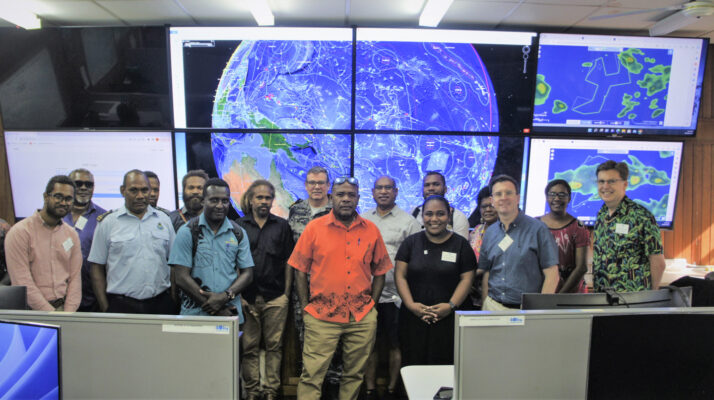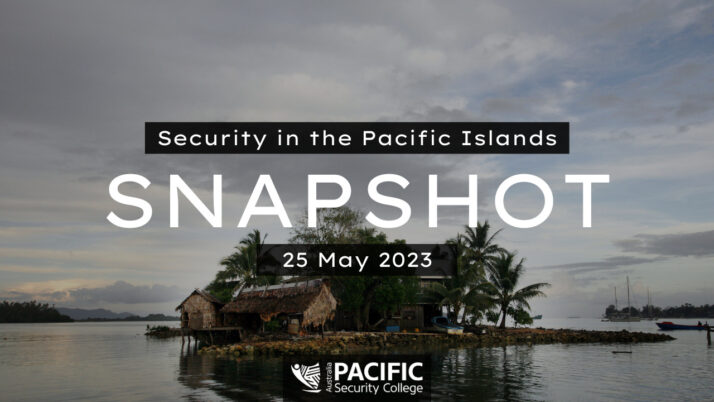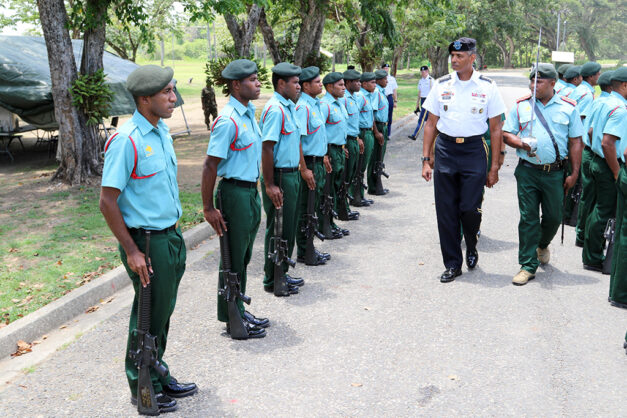The securitization of public health emergencies
Henry Ivarature
A new bill passed in the Papua New Guinea (PNG) Parliament has increased the state’s security powers to deal with public health emergencies. Henry Ivarature takes a look at whether there is a better way to achieve health emergency goals.
Late last week I got wind that the PNG Public Health Emergency Bill was about to come before Parliament — things moved so quickly that the Bill passed before I could get a copy!
The PNG Public Health Emergency Bill 2020 was rushed through Parliament on Friday last week, almost too quick for members of the opposition to read it when it became available on the same day. The government suspended Parliamentary standing orders and tabled the Bill before the public or Opposition had time to review it. Only 14 MPs voted against it as time was too short for proper consideration.
The Act has two purposes. The first is to have a legal framework to respond to public health emergencies, defined as ‘an extraordinary event which is determined to constitute a public health risk of international concern’. Second is ‘to enable the delivery of a national response to a public health emergency’.
According to the Deputy Prime Minister Davis Stevens, “the bill seeks to provide a practical and effective legislative mechanism for the implementation of all necessary measures to detect, prevent the entry of, and eradication of pandemic, outbreak or serious public health threat”.
The Act’s framework is largely derived from current COVID-19 State of Emergency (SOE) regulations and, by framing them as a security response to threats to the state and society, codifies them into law.
The Act defines a public health threat as something that represents an existential threat to state and society. In the case of COVID-19 the nature of the threat to PNG and its people is publicly perceived as high, extreme or exceptional. To date only eight COVID-19 cases have been detected in PNG, but with hundreds of cases just across the border in West Papua, risks are high.
Three key factors have encouraged this securitized approach. First is the evidence of a serious threat to health security, supported by the weight of global data on COVID-19 cases and the thousands of lives that have been lost elsewhere. The evidence from national data is not necessary for policymakers to be convinced of the implications COVID-19 has for PNG. Additionally, the government currently controls a large majority which, combined with an inherently weak Opposition, gives them the ability to easily pass and enact laws.
The second factor is the perceived breakdown of weak public health infrastructure, resources and facilities necessary to handle a pandemic. These weaknesses range from the lack of personal protection equipment, ventilators, testing capabilities, lack of resources to procure and deliver vaccines, the run-down state of hospitals and an insufficient number of medical professionals per capita. Considering the country’s weak health infrastructure, the government wants greater powers to regulate and constrain public behaviour.
The third driver is the threat of COVID-19 entering PNG, particularly over PNG’s border with Indonesia’s Papua Province. This issue is particularly aggravated by a 750-kilometre porous land border separating Indonesia from Papua New Guinea. Even if the COVID-19 pandemic does not transpire as anticipated through cross-border transmission, successfully securing PNG will be seen as a security win. The government, despite its weak capacity and poor financial situation, can use this Act and subsequent actions to assure its people that its efforts are win-win, benefiting the containment of COVID-19 and strengthening border control.
In securitizing the public health emergency, however, the Act risks diverting resources from basic public health infrastructure in the long-term. As it appears, the focus of the Act is largely about controlling the population, regulation, and law enforcement potentially led by security officers with enhanced powers. Emphasis is placed on the non-medical aspects. As a framework, it seems to operate outside the public health act and is to be activated in times of public health emergencies.
Perhaps, instead of developing a new framework, amendments could be made to the existing public health law to provide a structure that fully entails a medical approach to dealing with medical emergencies.
There are public health laws in the region that could have helped shape a PNG framework that would not debase democracy or impinge on human rights, freedoms and liberties. A framework where law enforcement agencies play a supportive role and do not run the show; and where accountability and transparency measures allow public scrutiny.
For example, the Tonga Public Health Act 2008 contains provisions that adequately cater for public health emergencies and states of emergencies as a result of a public health threat. The emergency provisions are an integral aspect of public health management and are overseen by the Director of Health, usually a qualified medical professional, who is answerable and accountable to the Minister of Health. Its provisions on notifiable conditions, in which pandemics like COVID-19 are declared, are comprehensive and support sound management, including the declaration of SOE’s and steps to act decisively. Its provisions on public health provision could be a model for consideration.
In securitizing the response to a health security threat, the PNG Act risks creating a serious mismatch between drivers of public health emergencies and pandemic prevention. Public health, public health spending, and public confidence and support could be undermined.
Perhaps a better investment in public emergency health management would be to develop policies to address different aspects of health emergencies, for example, from low-level outbreaks to pandemics; adopting a systematic approach to pandemic readiness between state and society; and investing in long-term public health funding strategies.
There may be good reasons for such an Act, but the focus is on security and not better health management, along with the rushed tabling of the Bill without proper scrutiny, are cause for legitimate concern.
Read more blogs by Henry Ivarature here.
More Stories

Latest News - 4 Oct 2023
Regional and National Security Architecture in the Blue Pacific, Honiara, Solomon Islands
Former deputy secretary of the Pacific Islands Forum Mr Peter Forau, and CEO of Solomon Islands Broadcasting Corporation and former adviser to the Pacific Islands Forum Johnson Honimae join the Pacific Security College’s workshop on Regional and National Security Architecture in the Blue Pacific The recently concluded Regional and National Security Architecture in the…

Security Snapshot - 26 May 2023
Pacific Security Snapshot | 25 May 2023
The security stories shaping the region ➣ Papua New Guinea and the United States sign Defence Cooperation Agreement ➣ United States-Pacific Islands Forum Dialogue held in Port Moresby ➣ Pacific leaders meet Indian Prime Minister Narendra Modi ➣ Pacific call for climate finance breakthrough at UN session ➣ Tuvalu strengthens efforts against illegal, unreported and…







